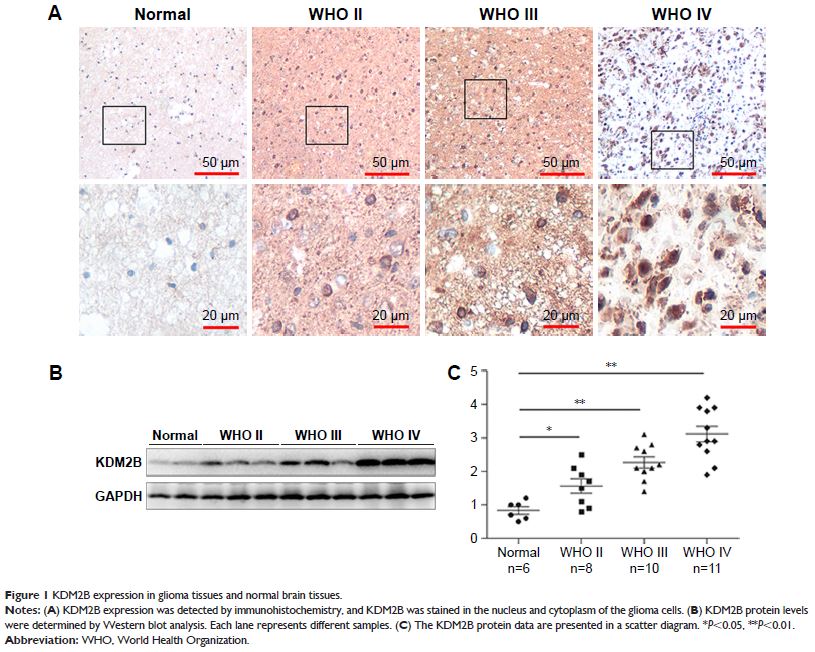9 0 6 7 6
论文已发表
注册即可获取德孚的最新动态
IF 收录期刊
- 2.6 Breast Cancer (Dove Med Press)
- 3.9 Clin Epidemiol
- 3.3 Cancer Manag Res
- 3.9 Infect Drug Resist
- 3.6 Clin Interv Aging
- 4.8 Drug Des Dev Ther
- 2.8 Int J Chronic Obstr
- 8.0 Int J Nanomed
- 2.3 Int J Women's Health
- 3.2 Neuropsych Dis Treat
- 4.0 OncoTargets Ther
- 2.2 Patient Prefer Adher
- 2.8 Ther Clin Risk Manag
- 2.7 J Pain Res
- 3.3 Diabet Metab Synd Ob
- 4.3 Psychol Res Behav Ma
- 3.4 Nat Sci Sleep
- 1.9 Pharmgenomics Pers Med
- 3.5 Risk Manag Healthc Policy
- 4.5 J Inflamm Res
- 2.3 Int J Gen Med
- 4.1 J Hepatocell Carcinoma
- 3.2 J Asthma Allergy
- 2.3 Clin Cosmet Investig Dermatol
- 3.3 J Multidiscip Healthc

KDM2B 过表达与不良预后相关,并调节神经胶质瘤细胞生长
Authors Wang Y, Zang J, Zhang D, Sun Z, Qiu B, Wang X
Received 23 August 2017
Accepted for publication 28 November 2017
Published 8 January 2018 Volume 2018:11 Pages 201—209
DOI https://doi.org/10.2147/OTT.S149833
Checked for plagiarism Yes
Review by Single-blind
Peer reviewers approved by Dr Akshita Wason
Peer reviewer comments 2
Editor who approved publication: Dr Samir Farghaly
Background: Gliomas are one of the
most lethal cancers in the human central nervous system. Despite clinical
treatment advancements, the prognosis of patients with glioma remains poor.
KDM2B is a histone lysine demethylase, which has been observed in multiple
tumors. But the concrete role of KDM2B in gliomas remains to be further
illustrated.
Methods: The KDM2B expression in gliomas was detected with
immunohistochemistry and Western blot assay. Furthermore, knockdown of KDM2B in
U87 and U251 glioma cell lines, the proliferation capacity was evaluated by
cell viability assay, colon formation assay and flow cytometry in vitro.
Western blot assay was used to analyze the p21, EZH2 and cyclinD1 changes
followed by knockdown of KDM2B.
Results: KDM2B was upregulated in tissues of glioma
patients, and the expression was correlated to cancer progression.
Downregulation of KDM2B in U87 and U251 glioma cell lines inhibited cell
proliferation and arrested cell cycle in G0/G1 phase. In addition, silencing
KDM2B promoted the upregulation of p21 while reduced the expression of EZH2 and
cyclinD1.
Conclusion: Taken together, our results revealed that KDM2B might
influence gliomas growth and act as a novel therapeutic target for glioma
patients.
Keywords: EZH2, glioma,
KDM2B, P21
